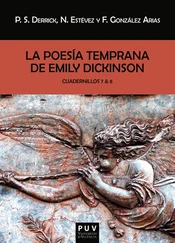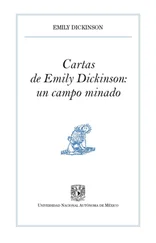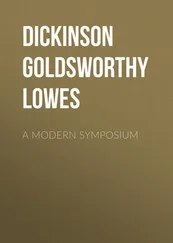Goldsworthy Dickinson - Appearances - Being Notes of Travel
Здесь есть возможность читать онлайн «Goldsworthy Dickinson - Appearances - Being Notes of Travel» — ознакомительный отрывок электронной книги совершенно бесплатно, а после прочтения отрывка купить полную версию. В некоторых случаях можно слушать аудио, скачать через торрент в формате fb2 и присутствует краткое содержание. Жанр: foreign_antique, foreign_prose, на английском языке. Описание произведения, (предисловие) а так же отзывы посетителей доступны на портале библиотеки ЛибКат.
- Название:Appearances: Being Notes of Travel
- Автор:
- Жанр:
- Год:неизвестен
- ISBN:нет данных
- Рейтинг книги:5 / 5. Голосов: 1
-
Избранное:Добавить в избранное
- Отзывы:
-
Ваша оценка:
- 100
- 1
- 2
- 3
- 4
- 5
Appearances: Being Notes of Travel: краткое содержание, описание и аннотация
Предлагаем к чтению аннотацию, описание, краткое содержание или предисловие (зависит от того, что написал сам автор книги «Appearances: Being Notes of Travel»). Если вы не нашли необходимую информацию о книге — напишите в комментариях, мы постараемся отыскать её.
Appearances: Being Notes of Travel — читать онлайн ознакомительный отрывок
Ниже представлен текст книги, разбитый по страницам. Система сохранения места последней прочитанной страницы, позволяет с удобством читать онлайн бесплатно книгу «Appearances: Being Notes of Travel», без необходимости каждый раз заново искать на чём Вы остановились. Поставьте закладку, и сможете в любой момент перейти на страницу, на которой закончили чтение.
Интервал:
Закладка:
For example: Once the Buddha lived upon earth as a hare. In order to test him Indra came down from heaven in the guise of a traveller. Exhausted and faint, he asked the animals for help. An otter brought fish, a monkey fruit, a jackal a cup of milk. But the hare had nothing to give. So he threw himself into a fire, that the wanderer might eat his roasted flesh. Again: Once the Buddha lived upon earth as an elephant. He was met by seven hundred travellers, lost and exhausted with hunger. He told them where water would be found, and, near it, the body of an elephant for food. Then, hastening to the spot, he flung himself over a precipice, that he might provide the meal himself. Again: Once the Buddha lived upon earth as a stag. A king, who was hunting him, fell into a ravine. Whereupon the stag halted, descended, and helped him home. All round the outer wall run these pictured lessons. And opposite is shown the story of Sakya-Muni himself. We see the new-born child with his feet on lotuses. We see the fatal encounter with poverty, sickness, and death. We see the renunciation, the sojourn in the wilderness, the attainment under the bo-tree, the preaching of the Truth. And all this sculptured gospel seems to bring home to one, better than the volumes of the learned, what Buddhism really meant to the masses of its followers. It meant, surely, not the denial of the soul or of God, but that warm impulse of pity and love that beats still in these tender and human pictures. It meant not the hope or desire for extinction, but the charming dream of thousands of lives, past and to come, in many forms, many conditions, many diverse fates. The pessimism of the master is as little likely as his high philosophy to have reached the mind or the heart of the people. The whole history of Buddhism, indeed, shows that it did not, and does not. What touched them in him was the saint and the lover of animals and men. And this love it was that flowed in streams over the world, leaving wherever it passed, in literature and art, in pictures of flowers or mountains, in fables and poems and tales, the trace of its warm and humanising flood.
Still, there is the other Buddhism, the Buddhism of the thinker; his theory of human life, its value and purpose. And it was this that filled my mind later as I sat on the summit next to a solemn Buddha against the setting sun. For a long time I was silent, meditating his doctrine. Then I spoke of children, and he said, "They grow old." I spoke of strong men, and he said, "They grow weak." I spoke of their work and achievement, and he said, "They die." The stars came out, and I spoke of eternal law. He said, "One law concerns you – that which binds you to the wheel of life." The moon rose, and I spoke of beauty. He said, "There is one beauty – that of a soul redeemed from desire." Thereupon the West stirred in me, and cried "No!" "Desire," it said, "is the heart and essence of the world. It needs not and craves not extinction. It needs and craves perfection. Youth passes; strength passes; life passes. Yes! What of it? We have access to the youth, the strength, the life of the world. Man is born to sorrow. Yes! But he feels it as tragedy and redeems it. Not round life, not outside life, but through life is the way. Desire more and more intense, because more and more pure; not peace, but the plenitude of experience. Your foundation was false. You thought man wanted rest. He does not. We at least do not, we of the West. We want more labour; we want more stress; we want more passion. Pain we accept, for it stings us into life. Strife we accept, for it hardens us to strength We believe in action; we believe in desire. And we believe that by them we shall attain." So the West broke out in me; and I looked at him to see if he was moved. But the calm eye was untroubled, unruffled the majestic brow, unperplexed the sweet, solemn mouth. Secure in his Nirvana, he heard or he heard me not. He had attained the life-in-death he sought. But I, I had not attained the life in life. Unhelped by him, I must go my way. The East, perhaps, he had understood. He had not understood the West.
XI
A MALAY THEATRE
It seems to be a principle among shipping companies so to arrange their connections that the traveller should be compelled to spend some days in Singapore. We evaded this necessity by taking a trip to Sumatra, but even so a day and a night remained to be disposed of. We devoted the morning to a bathe and a lunch at the Sea View Hotel, and the afternoon to the Botanical Gardens, where the most attractive flowers are the children and the most interesting gardeners their Chinese nurses. There remained the evening, and we asked about amusements. There was a bioscope, of course; there is always a bioscope; we had found one even in the tiny town of Medan, in Sumatra. There was also an opera company, performing the "Pink Girl." We seemed to know all about her without going to see her. Was there nothing else? Yes; a Malay theatre. That sounded attractive. So we took the tram through the Chinese quarter, among the "Ah Sins" and "Hup Chows," where every one was either a tailor or a washerman, and got down at a row of red lights. This was the Alexandra Hall, and a bill informed us that the performers were the Straits Opera Company. This dismayed us a little. Still, we paid our dollars, and entered a dingy, dirty room, with a few Malays occupying the back benches and a small group of Chinese women and children in either balcony. We took our seats with half a dozen coloured aristocrats in the front rows, and looked about us. We were the only Europeans. But, to console us in our isolation, on either side of the proscenium was painted a couple of Italians in the act of embracing as one only embraces in opera. We glanced at our programme and saw that the play was the "Moon Princess," and that Afrid, a genie, figured in the cast. It was then, at least, Oriental, though it could hardly be Malay, and our spirits rose. But the orchestra quickly damped them; there was a piano, a violin, a 'cello, a clarionet, and a cornet, and from beginning to end of the performance they were never in tune with themselves or with the singers. And the music? It was sometimes Italian, sometimes Spanish, never, as far as I could detect, Oriental, and always thoroughly and frankly bad.
No matter! The curtain rose and displayed a garden. The Prince entered. He was dressed in mediæval Italian costume (a style of dress, be it said once for all, which was adopted by the whole company). With gestures of ecstatic astonishment he applied his nose to the paper roses. Then he advanced and appeared to sing, for his mouth moved; but the orchestra drowned any notes he may have emitted. The song finished, he lay down upon a couch and slept. Whereupon there entered an ugly little girl, in a short white frock and black stockings and ribbons, with an expression of fixed gloom upon her face, and began to move her feet and arms in a parody of Oriental dancing. We thought at first that she was the Moon Princess, and felt a pang of disappointment. But she turned out to be the Spirit of Dreams; and presently she ushered in the real Princess, with whom, on the spot, the Prince, unlike ourselves, became violently enamoured. She vanished, and he woke to find her a vision. Despair of the Prince; despair of the King; despair of the Queen, not unmixed with rage, to judge from her voice and gestures. Consultation of an astrologer. Flight of the Prince in search of his beloved. Universal bewilderment and incompetence, such as may be witnessed any day in the East when anything happens at all out of the ordinary way. At this point enter the comic relief, in the form of woodcutters. I am inclined to suppose, from the delight of the audience, that there was something genuine here. But whatever it was we were unable to follow it. Eventually the woodcutters met Afrid, whether by chance or design I could not discover. At any rate, their reception was rough. To borrow the words of the synopsis, "a big fight arose and they were thrown to space"; but not till they had been pulled by the hair and ears, throttled and pummelled, to the general satisfaction, for something like half an hour.
Читать дальшеИнтервал:
Закладка:
Похожие книги на «Appearances: Being Notes of Travel»
Представляем Вашему вниманию похожие книги на «Appearances: Being Notes of Travel» списком для выбора. Мы отобрали схожую по названию и смыслу литературу в надежде предоставить читателям больше вариантов отыскать новые, интересные, ещё непрочитанные произведения.
Обсуждение, отзывы о книге «Appearances: Being Notes of Travel» и просто собственные мнения читателей. Оставьте ваши комментарии, напишите, что Вы думаете о произведении, его смысле или главных героях. Укажите что конкретно понравилось, а что нет, и почему Вы так считаете.












